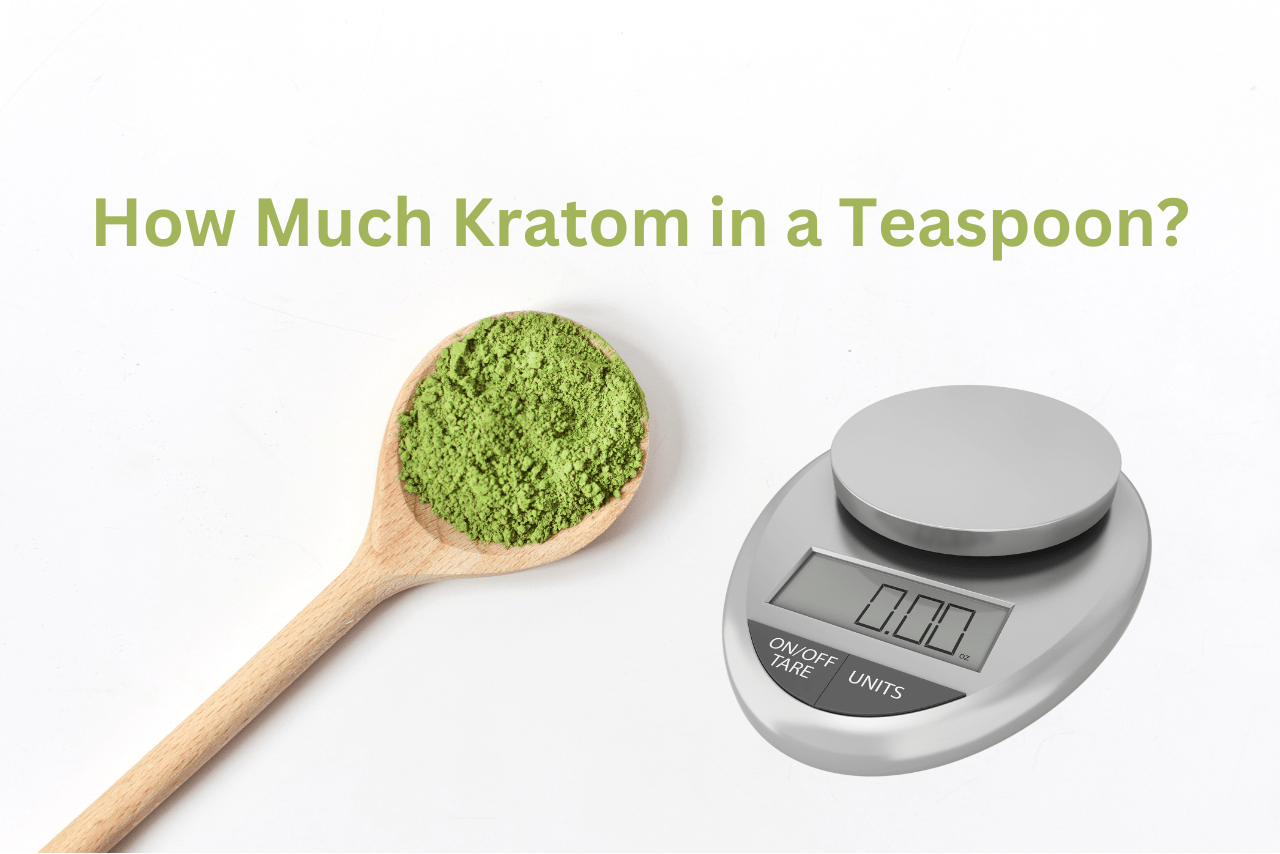Contents
Unveiling the Truth: Does Kratom Cause Weight Gain?
- Written by Sagar
- Updated on April 23, 2025
- Published on
- Kratom Legal Status
TL;DR
Wondering if kratom might cause weight gain? You’re not alone! This friendly guide dives into the relationship between kratom and body weight, exploring how it affects metabolism and appetite regulation. While some users report decreased hunger, others experience increased cravings, making individual responses key. Factors like dosage, frequency, and overall health also play a significant role.
Table of Contents:
- Exploring the Relationship Between Kratom and Weight Gain
- Understanding the Effects of Kratom on Metabolism
- Research Studies on Kratom and Body Weight Changes
- Factors Contributing to Weight Gain While Using Kratom
- Conclusion
- Frequently Asked Questions
Curious about the potential impact of kratom on your weight? You’re not alone. Many people wonder whether using kratom can lead to weight gain. In this article, we’ll explore this question and provide you with valuable insights to help you make informed decisions about incorporating kratom into your routine.
When it comes to managing your weight, understanding how different substances can affect your body is crucial. Kratom, a natural herb derived from the leaves of the Mitragyna speciosa tree, has gained popularity in recent years for its various potential benefits. However, the relationship between kratom use and weight changes is a topic that requires a closer look.
Stay tuned as we delve into the research surrounding kratom and its potential impact on weight. By the end of this article, you’ll have a clearer understanding of whether kratom could contribute to weight gain and how to approach its use mindfully.
Exploring the Relationship Between Kratom and Weight Gain
Understanding how kratom affects weight is crucial for making informed decisions about its use. Kratom, originating from the Mitragyna speciosa tree, has sparked concerns regarding its impact on body weight. Research plays a vital role in unraveling the mysteries surrounding kratom and its potential influence on weight.
Digging deeper, let’s delve into the existing studies and findings to shed light on how kratom interacts with the body in terms of weight management. This exploration aims to provide you with valuable insights, empowering you to navigate the realm of kratom consumption more knowledgeably and confidently.
Stay tuned to gain a clearer perspective on the intricate relationship between kratom and weight fluctuations. Remember, knowledge is power when it comes to understanding how substances like kratom may impact your body composition.
Understanding the Effects of Kratom on Metabolism
When considering the impact of kratom on metabolism, it’s crucial to explore how it affects various aspects of your body’s functioning. Let’s delve into the specific areas where kratom may influence your metabolism.
Impact of Kratom on Appetite Regulation
Kratom has been suggested to potentially impact appetite regulation in some individuals. While some users report a decrease in appetite when consuming kratom, others may experience an increase in hunger. This variability in effects on appetite regulation could be attributed to individual differences in metabolism and how the body reacts to the compounds present in kratom.
Influence of Kratom on Energy Expenditure
The influence of kratom on energy expenditure is a topic that requires further research for conclusive findings. Some users claim that kratom boosts their energy levels, potentially leading to increased physical activity and calorie expenditure. However, the extent to which kratom directly affects energy expenditure needs more scientific investigation to fully understand its metabolic implications.
Research Studies on Kratom and Body Weight Changes
Exploring the impact of kratom on body weight involves delving into various research studies that shed light on how this substance interacts with metabolism and weight management. Understanding the findings from these studies can provide insights into the potential effects of kratom on your body and weight regulation. Let’s dive into some key research studies on kratom and body weight changes:
- Metabolism and Appetite Regulation
- Research suggests that kratom may affect metabolism and appetite regulation differently among individuals. While some users report a decrease in appetite after consuming kratom, others may experience increased hunger. These variations in appetite responses highlight the complexity of how kratom interacts with the body’s metabolic processes.
- Energy Expenditure and Physical Activity
- Some users claim that kratom can boost energy levels, leading to increased physical activity and calorie expenditure. This potential increase in energy and activity levels may play a role in weight management for certain individuals. However, further research is necessary to fully understand how kratom influences energy expenditure and its impact on overall physical activity levels.
- Individual Responses and Variability
- It’s essential to recognize that individual responses to kratom can vary significantly. Factors such as metabolism, body composition, and overall health can influence how kratom affects body weight. By considering these individual differences, you can better understand how your body may respond to kratom consumption in terms of weight changes.
By examining these research studies on kratom and body weight changes, you can gain valuable insights into the potential effects of kratom on metabolism, appetite regulation, energy expenditure, and individual responses. This information empowers you to make informed decisions regarding the use of kratom and its impact on your body and weight management strategies.
Factors Contributing to Weight Gain While Using Kratom
Understanding the factors that may contribute to weight gain while using kratom is essential in evaluating its impact on your body. Several key elements can influence how kratom affects your weight, including:
- Dosage and Frequency: The amount of kratom consumed and how often you use it can play a role in weight management. Higher doses of kratom may lead to variations in appetite and energy levels, potentially impacting your calorie intake and expenditure.
- Metabolic Variability: Individual differences in metabolism can affect how kratom interacts with your body. Some people may experience changes in appetite and energy levels, influencing weight regulation differently based on their metabolic rate.
- Appetite Regulation: Kratom’s impact on appetite regulation varies among users. While some may notice a decrease in appetite, others might experience increased hunger. Understanding how kratom affects your hunger cues can help manage calorie intake and potential weight changes.
- Energy Expenditure: The energy-boosting effects of kratom can influence your physical activity levels and calorie expenditure. Increased energy from kratom may lead to enhanced movement and exercise, potentially affecting weight management outcomes.
- Overall Health Status: Factors like existing health conditions, body composition, and overall well-being can also influence how kratom impacts your weight. It’s important to consider your health status when assessing any changes in weight while using kratom.
By considering these contributing factors and monitoring your body’s response to kratom, you can better understand how it may affect your weight and make informed decisions about its use in your daily routine.
Conclusion
Understanding the complex relationship between kratom and weight management is crucial. Individual responses to kratom’s effects on appetite, energy levels, and metabolism vary, making it challenging to predict its impact on weight.
While some users may experience decreased appetite and increased energy expenditure, others might notice changes in hunger levels and calorie intake. Factors such as dosage, frequency of use, metabolic differences, and overall health status play significant roles in how kratom influences weight.
By staying informed and monitoring your body’s response, you can make informed decisions about incorporating kratom into your routine. Remember, knowledge is key when considering the effects of kratom on your body composition.
Frequently Asked Questions
Can using kratom lead to weight gain?
Kratom’s impact on weight management varies among individuals. Some users report decreased appetite, while others experience increased hunger. Additionally, kratom’s influence on energy levels can affect calorie expenditure and physical activity, potentially aiding in weight management. The effects depend on factors like metabolism, body composition, and health conditions.
What are the factors that contribute to weight gain when using kratom?
Dosage, frequency of use, metabolic differences among users, and kratom’s effects on appetite regulation play a role in weight changes. Higher doses might affect appetite and energy levels, impacting calorie intake and expenditure. Individual responses to kratom vary based on metabolism, body composition, and overall health status.




